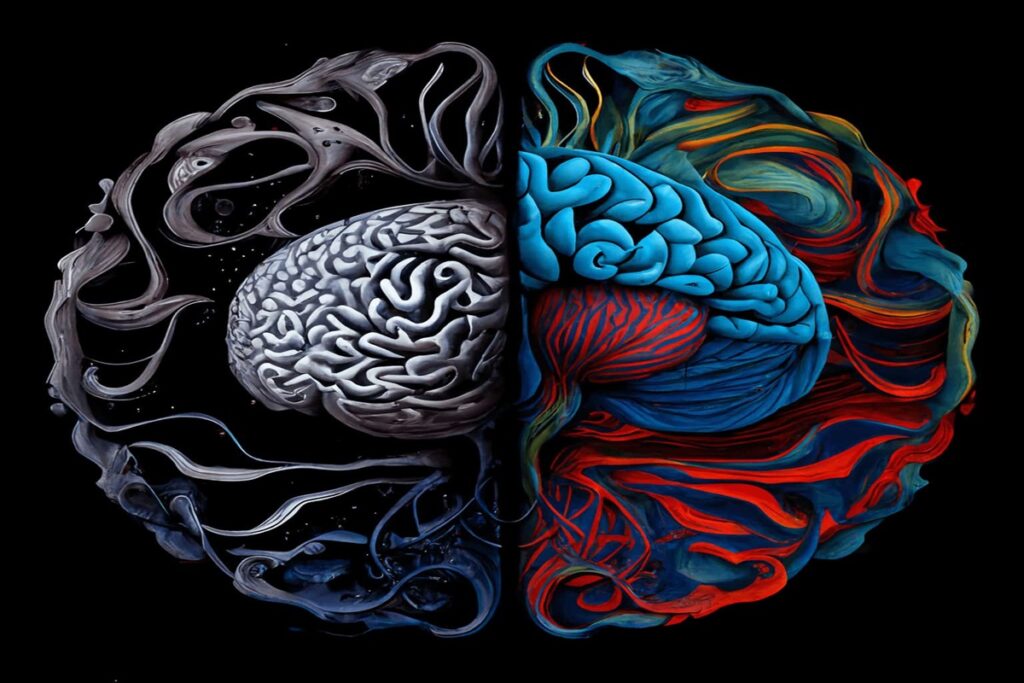Key Takeaways:
- Bipolar disorder is characterized by severe mood swings, including manic highs and depressive lows.
- Cognitive Behavioral Therapy (CBT) is the most effective therapy for managing bipolar disorder.
- CBT helps identify and challenge negative thoughts, develop coping strategies, and prevent relapses.
- A combination of medication and therapy provides the best outcomes for individuals with bipolar disorder.
- Seeking support from experienced therapists is crucial for effective treatment.
Which Therapy Is Best for Bipolar Disorder? How Does It Work? Living with bipolar disorder can be tough. It involves intense mood swings that can disrupt daily life and affect relationships. While medication is essential in managing these symptoms, therapy plays a vital role too. But which therapy is best for bipolar disorder? In this blog, we’ll explore the most effective therapy options and how they work, focusing on Cognitive Behavioral Therapy (CBT).
Bipolar disorder is a mental health condition that causes dramatic mood changes. People with this disorder experience manic episodes, where they feel overly happy and energetic, followed by depressive episodes, where they feel sad and uninterested in life. There are different types of bipolar disorder:
- Bipolar I Disorder: Characterized by severe manic episodes and often depressive episodes.
- Bipolar II Disorder: Involves hypomanic episodes, which are less severe than full-blown mania, along with depressive episodes.
- Cyclothymic Disorder: Features periods of hypomanic symptoms and depressive symptoms that don’t meet the criteria for a full depressive episode.
Therapy is crucial in managing bipolar disorder alongside medication. While medications like mood stabilizers help control mood swings, therapy provides individuals with tools to cope with challenges. Cognitive Behavioral Therapy (CBT) has emerged as a gold standard in treating this condition.
CBT is a structured, goal-oriented therapy that focuses on how thoughts, feelings, and behaviors are connected. Developed by Aaron Beck, this approach helps individuals identify negative thought patterns and replace them with healthier ones.
CBT specifically addresses the challenges posed by bipolar disorder, providing strategies to manage mood swings and improve daily functioning.
Subscribe for expert tips on managing bipolar disorder and start your journey to better mental health today!
In CBT, therapists work with clients to recognize negative thoughts that fuel mood swings. For example, during depressive episodes, individuals may feel worthless. CBT helps them reframe these thoughts, fostering a more balanced perspective.
Example: Imagine someone believes they will always fail in their job. CBT encourages them to challenge this thought by listing past successes, which can shift their mindset and boost self-esteem.
CBT equips individuals with practical coping strategies to handle stress and emotional turmoil. This can include:
- Sleep Hygiene: Learning to establish a healthy sleep routine.
- Daily Routines: Creating a structured daily schedule to enhance stability.
- Healthy Stress Management: Finding activities that promote relaxation, such as meditation or exercise.
CBT addresses behaviors that may trigger mood episodes. For example, during manic phases, impulsive spending can be a concern. CBT helps individuals create plans to manage these impulses, such as setting spending limits or discussing large purchases with a trusted friend.
One of the essential aspects of CBT is preventing relapses. By teaching clients to recognize early signs of mood changes, CBT empowers them to take proactive steps. This might involve:
- Monitoring Mood: Keeping a mood diary to track changes.
- Using Coping Strategies: Applying learned techniques to manage mood fluctuations effectively.
Practical Tips for Managing Bipolar Disorder: Here are some practical tips for individuals with bipolar disorder:
- Stick to a Routine: Having a daily routine can provide stability.
- Stay Active: Regular physical activity can improve mood and reduce stress.
- Connect with Others: Building a support network is vital. Reach out to friends, family, or support groups.
- Limit Stress: Identify stressors in your life and find ways to minimize them.
- Seek Professional Help: Work with an experienced therapist who understands bipolar disorder.
Dealing with bipolar disorder can be challenging, but the right therapy can make a significant difference. Cognitive Behavioral Therapy is a powerful tool that helps individuals manage mood swings, develop coping strategies, and prevent relapses. When combined with the appropriate medication, CBT can lead to improved quality of life.
If you or someone you know is struggling with bipolar disorder, consider reaching out to a qualified therapist for support. Together, you can find the best approach to managing this condition.
If you found this blog helpful, subscribe for more insights on mental health and therapy options! Your journey towards better understanding and managing bipolar disorder begins here.
We’d love to hear from you! Please leave your comments or feedback below. What strategies have you found helpful in managing bipolar disorder? Share your thoughts with us!





